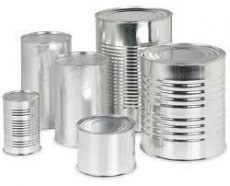New publications
Canned food is just as healthy as fresh produce
Last reviewed: 01.07.2025

All iLive content is medically reviewed or fact checked to ensure as much factual accuracy as possible.
We have strict sourcing guidelines and only link to reputable media sites, academic research institutions and, whenever possible, medically peer reviewed studies. Note that the numbers in parentheses ([1], [2], etc.) are clickable links to these studies.
If you feel that any of our content is inaccurate, out-of-date, or otherwise questionable, please select it and press Ctrl + Enter.

The results of a study by a nutritionist from the United States suddenly turned out to be contradictory: in our time, when canned food is considered a second-rate product and almost harmful, it suddenly turned out that in almost all cases such food is no worse than fresh products.
Recently, a multi-voice chorus of healthy eating experts has been constantly asserting that only food prepared from fresh products (meat, fish, fruits, vegetables) is considered healthy, and that eating canned vegetables and fruits is a waste of money.
Against this background, the assertion of Dr. Katie Kapica, an employee of the American Tufts University, that canned goods on store shelves are not always inferior in quality to fresh products, seems almost blasphemous.
But Dr. Kapika says that thanks to advanced canning technology, they contain sufficient amounts of vitamins and other essential substances (for example, fiber in canned vegetables) from a nutritional point of view, with a fairly high energy value.
At the same time, canned food is practically waste-free compared to raw and fresh products. In addition, Katie Kapika points out that another argument in favor of canned food is the undeniable saving of time for preparing a dish compared to classic cooking.
She backs up her claim with the following: a serving of canned beans costs $1 less than the same serving of fresh beans, and canned beans take 6 minutes to cook, while dry beans take more than 2.5 hours, including soaking time and cooking time.
In addition, when comparing the costs of obtaining almost the same amount of vitamin C from canned, frozen and fresh spinach, using canned food in your diet allows you to save up to 85% of your money.

 [
[